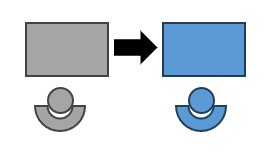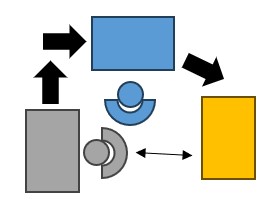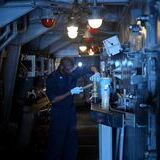Why operators should not check the quality of their own work in the manufacturing industry
In any manufacturing industry the main focus should always be customer satisfaction, therefore the quality inspection of the product must be carried out with the utmost rigor. In this post we will explain the reasons why a person who is performing value-added operations on a product should not inspect the quality of his own work, but should be a separate person.
Objectivity and Cognitive Bias
When performing a quality inspection, it is essential to adopt an objective perspective. If operators review their own work, there is an inherent risk of cognitive bias and lack of impartiality.
Cognitive bias refers to the tendency of people (operators in this case) to perceive their own work subjectively, influenced by their own experiences, beliefs and expectations. This bias can lead them to evaluate the quality of their work in a non-objective way, skipping certain defects that could affect the quality of the final product.
An operator who has spent a lot of time performing a value-added task may think that his work is of high quality, and if he performs the inspection afterwards, he runs the risk of overlooking some defects.
A simple example to understand this would be to put ourselves in the shoes of a student taking an exam. If instead of correcting the exam by the teacher, who is supposed to evaluate it objectively, the student himself would evaluate it, surely in a large percentage of cases the score given by the student himself would be better than the one given by the teacher.
Conflicts of Interest
If a person is in charge of production and final inspection of the product, he/she may sometimes have conflicts of interest, as he/she may have a higher priority in his/her personal objectives to produce more quantity or be penalized for rework, which would affect a properly done quality inspection.
Lack of External Perspective
Without an external point of view, operators may have difficulty evaluating their work objectively. This lack of perspective makes it difficult to identify potential problems or areas for improvement, ultimately compromising the overall quality of manufactured products.
Practical Example and Proposed Improvement
Let's imagine a product consisting of two parts that are clipped and screwed together.
The layout is arranged as follows:

As you can see there would be two operators performing the following operations:
- Operator 1: Gray Table: Performs the clipping of the two pieces.
- Operator 2: Blue Table: Performs the screwing of the two pieces and makes a visual inspection as well as the presence of the screws.
As can be seen, in this case operator 2 is inspecting the quality and presence of something he has just done, so the rigor with which he is going to carry out the task may not be adequate. After hours of work, he may assume that since he is doing the bolting work, he already knows that the bolts are in place, so why would he inspect it; and this is where the problems begin.
Ideally, we would like to have an operator who only performs the quality inspection of the part. However, we know that this is not always possible due to economic reasons, so in this case it would be better to change the layout and have operator 1 perform the quality inspection task, since he/she would check the presence of some screws that he/she has not put in, as well as a more rigorous appearance check.
It would be as follows:
- Operator 1: Gray Table: Performs the clipping of the two pieces and passes it to Operator 2. He then moves to the yellow table and makes a visual inspection as well as the presence of the screws of the piece left by Operator 2.
- Operator 2: Blue Table: Performs the screwing of the two pieces and leaves the piece on the yellow table awaiting inspection by Operator 1.

It will be best to have operators who only perform quality inspection
Separation of duties in the manufacturing industry, especially with regard to quality control, is essential to ensure objective verification of product quality. By preventing operators from reviewing their own work, it promotes impartiality, early defect detection and continuous process improvement, which benefits both the company and its customers.









